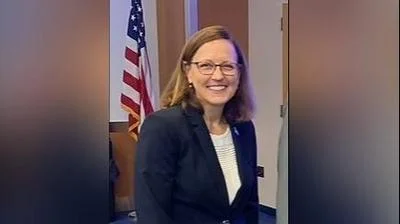Energy and Commerce Chairman Frank Pallone, Jr. (D-NJ) delivered the following remarks today at an Energy Subcommittee markup on ten energy bills.
Today the Subcommittee will markup ten bills that will make our country’s energy infrastructure more efficient, help develop a diverse energy workforce and enhance the security of our nation’s energy infrastructure.
Making the homes and buildings in our communities more energy efficient is incredibly important for several reasons. Efficiency work supports thousands of good-paying jobs at small businesses in every state. Moreover, weatherizing homes and greening our public buildings saves money and helps address climate change by reducing the amount of greenhouse gas pollution emitted into the air. To support these goals, the Subcommittee is considering five bills to increase energy efficiency in communities across the country.
The Subcommittee will also review two bills reauthorizing grant programs to assist states and local governments in making public infrastructure more energy efficient.
Representatives Stanton and Veasey have introduced H.R. 2088, which reauthorizes and increases funding for the Energy Efficiency and Conservation Block Grant Program. This program provides funds to local communities for projects that conserve energy and reduce greenhouse gas pollution. When it was last funded in 2009, communities used the resources to purchase, among other things, zero-emission fleet vehicles, install LED street lights and invest in renewable energy resources. We’ll also markup H.R. 2119, introduced by Rep. Kelly, which reauthorizes and increases funding for Department of Energy (DOE) grants to improve the efficiency of public buildings, which can save money for local communities and reduce carbon emissions.
Emerging technologies in smart buildings and water systems can also potentially yield significant energy savings. Representatives McNerney, Welch and Kinzinger have bills before us today that focus on technology as a driver for increased energy efficiency, and I support their bipartisan efforts.
DOE’s Weatherization Assistance Program saves consumers money on their energy bills and creates thousands of local jobs in communities across the country. H.R. 2041, introduced by Rep. Tonko, Chairman Rush and Rep. Kaptur, increases funding for the Weatherization Assistance Program to $350 million annually and modernizes the program.
Next, we will consider Chairman Rush’s “Blue Collar to Green Collar Jobs Development Act," which takes important steps to bridge the diversity gaps that currently exist in the energy sector. The bill establishes a comprehensive, nationwide program at DOE to improve education and training for jobs in energy-related industries. The legislation provides DOE new authority to offer direct assistance to schools, workforce development boards and labor organizations. The bill also establishes a grant program to provide funds to businesses to pay employees who are receiving training to work in the renewable energy, energy efficiency or grid modernization sectors.
Finally, the Subcommittee will consider four bipartisan energy cybersecurity bills. Reps. Latta and McNerney’s bill, H.R. 360, the Cyber Sense Act of 2019, would require the Secretary to establish a voluntary program to identify cyber-secure products that could be used in the bulk-power system. Mr. McNerney and Mr. Latta also introduced H.R. 359, the Enhancing Grid Security through Public-Private Partnerships Act, which directs the Secretary of Energy to create and implement a program to enhance the physical and cyber security of electric utilities.
H.R. 362, the Energy Emergency Leadership Act, sponsored by Chairman Rush and Rep. Walberg, would create in law a new DOE Assistant Secretary position with jurisdiction over all energy emergency and security functions related to energy supply, infrastructure and cybersecurity.
H.R. 370, the Pipeline and LNG Facility Cybersecurity Preparedness Act, was introduced by Ranking Member Upton and Rep. Loebsack. It would require the Secretary to carry out a program to establish policies and procedures that would improve the physical and cyber security of natural gas transmission and distribution pipelines, hazardous liquid pipelines, and liquefied natural gas facilities. This is a modest but critically important bill to ensure secure, reliable energy delivery.
The committee reported all four bills by voice vote last Congress.
We have ten strong bills before us today. I urge all my colleagues to support them, and I look forward to working with members on both sides of the aisle as we continue to act on these important proposals.




